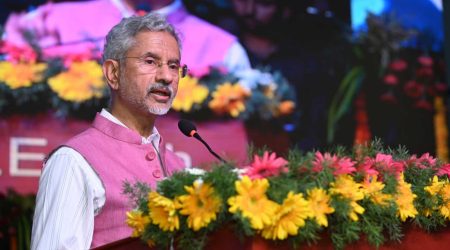Public policy majors study the social sciences and learn how to solve complex societal problems.
The curriculum for public policy analysis majors emphasizes the social sciences, including economics and political science. These academic programs allow students to develop the leadership and problem-solving skills needed to thrive in the fast-changing world of public policy. The goal for graduates of these programs is to be prepared to address society’s biggest challenges, no matter the arena or sector.
What Is a Public Policy Major?
A public policy major is a degree path that trains students to develop, implement and evaluate policy solutions for the problems society faces. Students may look at large-scale problems like controlling the national debt or focus on local issues, such as homelessness. They then apply interdisciplinary skills and critical thinking to measure government or nonprofit success in these areas and propose new solutions that could benefit the public.
Public policy major vs. political science major: What’s the difference?
Public policy and political science majors are similar. Some schools even offer the two subjects as one degree, such as a political science major with a public policy concentration. However, students majoring in political science analyze issues through the lens of politics and government. In contrast, public policy majors learn how to study and address social or environmental issues affecting the public, such as ending the opioid epidemic or protecting endangered species.
Common coursework Public Policy Majors can expect
At its core, this type of program trains students to participate in the policymaking process. Several courses are shared across departments and programs, and students can specialize in an area of interest.
Early undergraduate coursework for this major includes an introduction to the field where students gain a high-level understanding of policy design in response to large problem public, nonprofit and business spheres. Students also learn how other fields like political science, economics and philosophy inform the major while gaining exposure to fundamental ideas in ethics and leadership practices. Other foundational topics include management, communication, data analysis and research methods. Introductory courses typically include contemporary news and policy issues.
Which specialization students pursue depends on their career goals. Potential areas of concentration include natural resource management and local government. Public policy majors might instead explore homeland security, law or emergency management.
How to know if this major is the right fit for you
If you stay up-to-date on news and current events and dream of solving society’s big problems, this might be the major for you. Public policy is an interdisciplinary field with room for specialization and growth as your interests change and evolve. Students should be prepared for plenty of reading and writing. Policy analysts must be comfortable working with others to analyze and use data in the design and promotion of public policy.
What can I do with a Public Policy Major?
Public policy graduates can pursue career paths in many fields, though the most common is civil service at the federal, state or local level. Many of these degree holders gain entry-level positions with the government or nonprofit organizations. Some graduates choose to enter politics or academia by pursuing a legal career or a consulting role. Because of their experience with forecasting, economics and the political process, public policy graduates also qualify for roles in the banking, transportation and real estate fields.. Some firms hire people with these skills to advise when working with government agencies on large projects.
(Text courtesy: US News)












